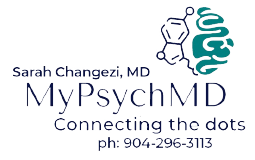Major depression is also known as major depressive disorder (MDD). It is a big mental health concern that affects many people worldwide. It transcends the occasional feelings of sadness that everyone experiences at times. Instead, it’s marked by deep and lasting sadness. It greatly affects a person’s life. Knowing the truths about this condition is vital. It is vital for those living with it and their loved ones.
The Nature of Major Depression
Major depression is far more than just feeling ‘down’ or ‘blue’. It is a clinical condition that requires understanding and medical attention. Its symptoms vary. They can affect every part of a person’s life. They impact their energy and sleep. They also hurt their ability to enjoy life and keep relationships.
Identifying the Symptoms
The psychological symptoms are often the most noticeable signs of major depression. They can include:
- Persistent sadness or a low mood that doesn’t go away
- Feeling hopeless or helpless, often without cause
- A noticeable loss of self-esteem
- An increase in tearfulness, sometimes without apparent reason
- Feelings of guilt that seem disproportionate
- Irritability and a lower tolerance threshold
- A distinct lack of motivation and pleasure in previously enjoyed activities
- Difficulty in decision-making
- Anxiety and an increase in worry
- In the most severe cases, thoughts of self-harm or suicide
Physical symptoms can also be prevalent, such as:
- Slower movement or speech
- Appetite changes and subsequent weight fluctuations
- Unexplained aches
- A drop in energy levels
- A reduced sexual drive
- Problems with sleep
Social symptoms include avoiding social situations. They also include neglecting hobbies and struggling with home, work, or family life.
The Realities of Living with Major Depression
Living with major depression means facing these symptoms regularly. It’s not something that can be ‘snapped out of’ and isn’t a sign of weakness or a failing. We do not fully understand the exact cause of MDD. But, we believe it is a mix of genes, biology, the environment, and the mind.
Treatment and Management
Treatment usually involves a combination of medication and psychotherapy. Antidepressants fix brain chemistry imbalances. Talking therapies, like cognitive-behavioural therapy, help with coping and changing negative thoughts. For those who don’t respond to these treatments, other interventions may be recommended. These include electroconvulsive therapy.
How Long Does Ketamine Last For OCD?
The Importance of Support
A robust support system is crucial. Keeping in touch with loved ones helps. So does joining support groups or online communities. They can give invaluable support. Also, lifestyle changes can help. These include regular exercise, enough sleep, and a healthy diet. They can help manage symptoms.
Major Depression and Grief
It’s essential to differentiate between grief and major depression. Grief is a natural response to loss and typically subsides with time. Major depression is more persistent and pervasive. While they share symptoms, the feelings of hopelessness and self-reproach common in major depression are not characteristic of normal bereavement.
Various Forms of Depression
Major depression can appear differently in people. Several subtypes exist, including seasonal affective disorder, postnatal depression, and premenstrual dysphoric disorder. Each type has its nuances and may require different management approaches.
Seeking Help
If you have symptoms of major depression for more than two weeks, it’s vital to seek professional help. Early action can lead to better results. It can stop the condition from getting worse.
The Truth About Recovery
The journey may be hard. But, most who seek and get treatment for major depression see big improvements. It’s a highly treatable condition, and many find their way back to a fulfilling life.
Can a Psychiatrist Prescribe Pain Medication?
Conclusion
Major depression is a condition that affects millions, but it does not define them. Knowing the truths about this disorder can dispel myths. It can also encourage those affected to seek the help they need. Remember, a low mood that lasts is not a life sentence. With the right support and treatment, there is hope and a path to recovery.
Take the First Step Towards Healing with MyPsychMD
Major depression is also known as major depressive disorder (MDD). It is a major mental health concern. It impacts millions worldwide. If you or a loved one feel sad or have the symptoms above, know that help is available.
At MyPsychMD, we get the complexities of major depression. We offer thorough support and treatment options made for your needs. Our experienced professionals provide a compassionate approach to help you navigate through this challenging time.
Don’t let major depression define you. Take the first step towards recovery by reaching out to MyPsychMD today. Your journey to healing starts here.





